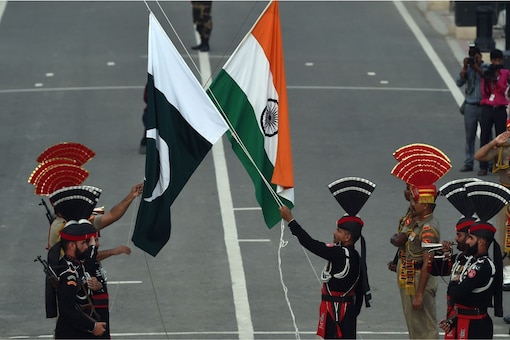
Both have much more in common than differ on
by Aqib Rehman 11 June 2023
India and Pakistan became independent countries after an evitable partition in 1947. The territorial division through the Redcliff mission left many scars on this holy land, a permanent bone of contention still punctures any possibility of peace between the two. Kashmir, which at that time was ruled by the Dogra’s had chosen to remain independent from both countries and was forced to accede with the union of India by the inhuman slotter of tribal invasion backed by the Pakistani Army.
However, both countries should not be held prisoners by the past and should not let the haunting past guide their future relationship. So what are then the possibilities? First the realpolitik. India is one of the largest economies of the world($3.3 Trillion World bank), it is heading the group of great 20 countries of the world(G20) and is one of the trusted partners in the international system. While the international trade diversification of India is quite evident, its trade relationship with Pakistan never materialized owing to the sponsorship of terrorist activities from the other side of the border. Currently the trade value between two countries is less than $2billion. Realistically speaking, there lies the solution. Pakistan has been going under economic stress for a very long time now. It needs to stabilize inflation while ensuring the delivery of goods and services to its citizens. Take for example the appeal of not taking tea. Pakistan could have easily imported tea from the next-door without much costs as India is one of the largest producers of tea. India, which believes in the philosophy of Vasudhaiva Kutumbakam, would have generously supported Pakistan in these crises provided latter stopped sheltering the terrorists. India needs to take the opportunity of increasing trade with Pakistan and create a complex interdependency scenario for Pakistan which is unescapable for it.
The Kashmir issue
Almost 7 and a half decades have passed and the issue seems unending. But as Confucius says, “It does not matter how slowly you go, as long as you do not stop.” Kashmir has an honor of hosting world’s most generous and peaceful Sufi Saints like Shah-E-Hamadan, Sheikh-ul-alaam, Lal ded and others and it is still considered as the pirver(land of the saints). But after the 1980s and 90s Kashmir was flooded with the radical Islamic ideologies like Deobandi, Wahabi and Salafi. These radical ideas spread hatred against the cultural ethos promoted by the Sufi saints like the togetherness of humankind, the love of God meaning the love of humans and altruism. While the Sufi saints believed in the contextual analysis of Quran and the Hadeet, the radical ideologies take it out of the context ergo spreading hate among the youth. Kashmir is on the path of radicalization since the last 35 years and any deradicalization is impossible if Sufism is not restored to its previous glory. What is important is to promote the ideas of Sufis of Kashmir within the youth and celebrating the festivals like Urs of Shah-E-Hamadan and Lal Ded. The author remembers the festival of serving Kashmiri Kahwa on 11th of every Islamic month on the name of these saints by the households who believed and followed the ideals of Sufis. This used to not only promote a sense of comradery among the children, but also taught them the rich history of the land. The tradition dyed because of the opposition from the radical ideologies given their anti-Sufi ideals. What the government needs to do is to educate the Kashmiri youth about their own history rather than the history of far-flung desert. The reopening of borders to the Kartarpur Sahib was a visionary step which could only be taken by a person with high morals. This history of reconnecting needs to be repeated again and again till the forces with vested interests are defeated. Third and the most important, the pending border issues should be resolved as soon as possible. This means converting the line of control into a demarcated international border. No doubt India has the capabilities of taking back the Pakistan occupied Kashmir. It can do it anytime it wishes. On the other hand Pakistan which is suffering by both the natural as well as human induced crises is neither capable nor interested in resolving this issue. Therefore India which from the traditions has been peacemaker should initiate this solution which will help it in shifting its complete focus on China. The resolution will also give a sense of security to the people of Kashmir if most of the army is taken to the borders. As the separatist movement is dyeing the death of its own, there seem to be less takers of their ideas now. So India should catch hold of this opportunity.
Both India and Pakistan have a common history and culture of more than 3500 years and any foreign idea or the separation of just 75 years should not be able to make us permanent enemies. This is the perfect time of mending the fences otherwise history forgives none.
Aqib Rehman belongs to Kashmir and is a research scholar of Chinese studies at the center for East Asian studies, school of international studies, Jawaharlal Nehru university, New Delhi. The views expressed are personal.
